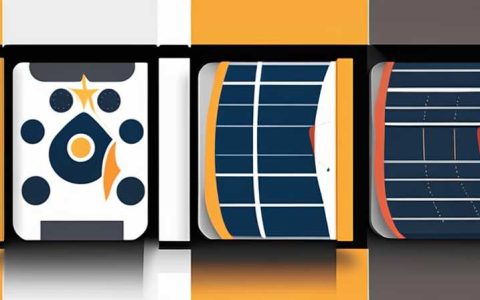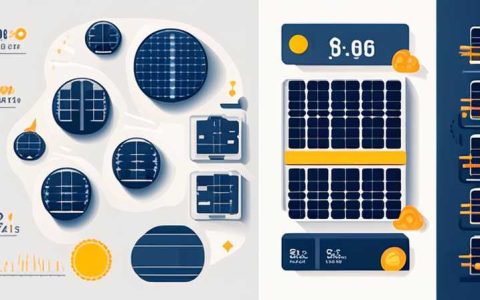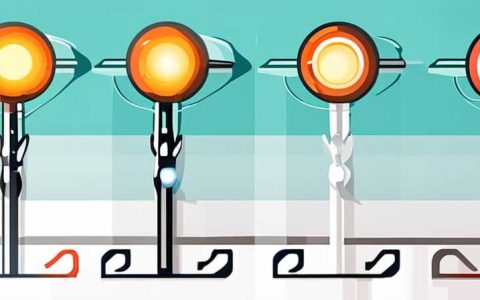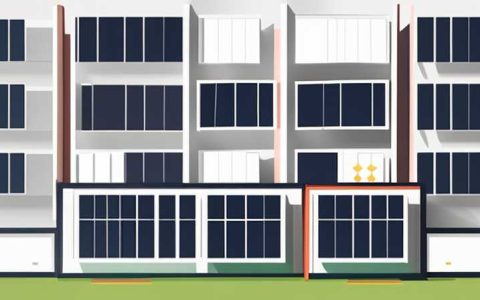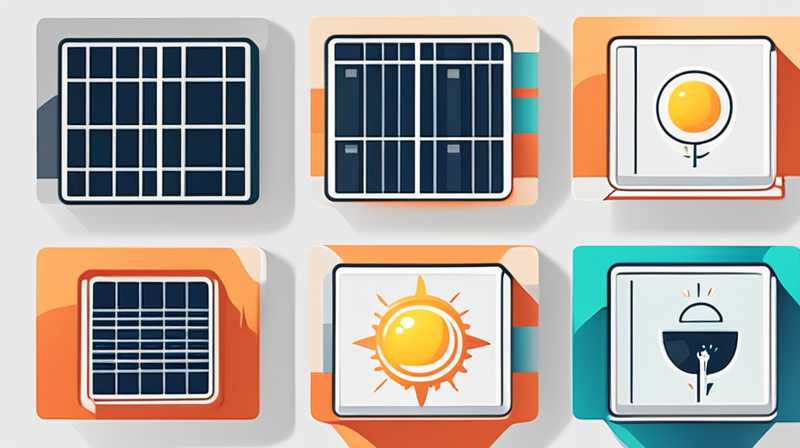
Solar lights are an eco-friendly and energy-efficient alternative for outdoor illumination. To boost the power of solar lights, a multifaceted approach is essential. 1. Selecting high-quality solar panels, 2. Ensuring optimal placement for maximum sunlight exposure, 3. Utilizing advanced battery technology, 4. Regular maintenance and care of solar lights. One of the most crucial aspects is the selection of high-quality solar panels; good panels harness more sunlight and convert it into electricity more effectively. This leads to increased light output during the night and improved longevity. Additionally, ensuring solar lights are placed in locations that receive ample sunlight throughout the day is vital to optimize energy absorption. The use of superior battery technology allows for better storage of energy, enabling lights to produce brightness for extended hours. Regular maintenance, including cleaning the solar panels and checking for obstructions, ensures that solar lights operate at their peak efficiency. These strategies help enhance the overall performance of solar lights.
1. SELECTING HIGH-QUALITY SOLAR PANELS
When discussing the enhancement of solar lights, attention must be directed towards the selection of high-quality solar panels. Solar panels serve as the heart of solar lighting systems; their efficiency directly influences the performance of the lights. High-quality panels often utilize monocrystalline silicon, which is more efficient at converting sunlight into electricity compared to polycrystalline alternatives. The conversion efficiency determines how much light energy can be captured and transformed into usable electricity. Therefore, investing in panels with higher efficiency ratings is imperative for maximizing the light output.
Moreover, the durability and warranty of solar panels should be carefully considered. Panels that come with extensive warranties often reflect the manufacturer’s confidence in their quality and longevity. Understanding the energy needs of the lighting set-up is equally important. The more energy-efficient the panel, the longer and brighter the light will shine during nighttime. Thus, a thorough evaluation of solar panels’ quality and specifications is a significant step in boosting the overall power of solar lights.
2. ENSURING OPTIMAL PLACEMENT FOR MAXIMUM SUNLIGHT EXPOSURE
Placement is critical when it comes to the efficiency of solar lights. Ensuring optimal positioning for maximum sunlight exposure can drastically enhance their performance. Ideal placement should be in areas that receive direct sunlight for at least six to eight hours each day. This may involve scouting locations throughout the day to observe sun pathways and adjusting the positioning of lights accordingly. Avoiding shaded areas caused by trees or other structures will maximize sunlight absorption, ultimately contributing to more reliable illumination once night falls.
Furthermore, it’s essential to consider the angle of the solar panels. Panels should be adjusted to face the sun directly; slight tilting can capture more sunlight, especially during the early morning and late evening hours when the sun is low in the sky. Regularly monitoring and re-evaluating light placement based on seasonal changes is also beneficial. As trees grow or constructions arise, a once-favorable location could become less effective. Thus, proactive adjustments ensure solar lights remain efficient and powerful.
3. UTILIZING ADVANCED BATTERY TECHNOLOGY
The battery within solar lights acts as a reservoir, storing captured solar energy for use during the night. To significantly increase the power of solar lights, it’s crucial to leverage advanced battery technology. Many modern solar lights now incorporate lithium-ion batteries, known for their superior energy density and longevity when compared to traditional lead-acid batteries. A lithium-ion battery can recharge faster and can undergo more charge-discharge cycles without significant degradation, ensuring that solar lights maintain a reliable performance over an extended period.
Moreover, understanding the capacity of the battery is crucial. Higher capacity batteries can store more energy, allowing the lights to function longer and brighter during the night. Integrating smart battery management systems can also enhance performance by ensuring that batteries are efficiently charged and maintained at optimal levels. Regular battery checks should be performed to ensure that connections are clean and that the batteries are functioning as expected. By investing in advanced battery technology and maintaining battery health, the overall efficiency and power of solar lights can be substantially increased.
4. REGULAR MAINTENANCE AND CARE OF SOLAR LIGHTS
To consistently enjoy powerful solar lighting, regular maintenance and care of solar lights cannot be overlooked. Solar panels should be routinely cleaned to remove dust, dirt, and debris; this ensures maximum sunlight absorption. Neglecting to clean panels can lead to a significant reduction in solar energy capture, resulting in diminished performance and brightness. Using a soft cloth and mild soap solution can effectively clean the panels without scratching them.
In addition to panel cleaning, inspecting the entire lighting unit periodically is advisable. This includes checking wiring for wear or damage, ensuring light bulbs are in good condition, and replacing or repairing components as needed. Regular adjustments in positioning, as seasons change, will help maintain optimal sunlight exposure. Timely maintenance ensures solar lights remain efficient, which directly contributes to their overall power output. By incorporating these maintenance practices, users can significantly prolong the lifespan and enhance the effectiveness of their solar lighting systems.
QUESTIONS AND ANSWERS
1. HOW CAN I IMPROVE THE EFFICIENCY OF MY SOLAR LIGHTS?
Improving the efficiency of solar lights greatly revolves around key aspects like panel quality, placement, battery technology, and maintenance. Firstly, investing in high-efficiency solar panels, usually made from monocrystalline material, is significant because they absorb more sunlight compared to lower-quality alternatives. Placement should be done in areas with direct sun exposure for significant portions of the day, ideally avoiding shadows from trees or buildings. Advanced battery technology, specifically lithium-ion batteries, can influence efficiency; they charge faster and hold energy longer. Regular maintenance, such as cleaning solar panels and checking for any signs of wear, ensures optimal functionality. Additionally, utilizing sensors and smart home integrations may allow efficient lighting control, further optimizing energy usage.
2. WHAT ARE THE BEST SOLAR LIGHTS ON THE MARKET?
When looking for the best solar lights, several factors need to be considered. Well-rated brands often include Ring, GKOLO, and URPOWER, which offer various features, including waterproofing and varying brightness levels. The best choice largely depends on user needs; for example, motion sensor lights are superb for security applications, while decorative solar lights add aesthetic appeal in gardens. Looking for lights with durable materials that offer substantial battery life and impeccable customer reviews also helps in identifying high-quality models. Users may consider examining the warranty and service options provided by manufacturers, as this could indicate long-term reliability. Ultimately, the effectiveness of solar lights will depend on the environment they are installed in and individual preferences.
3. HOW LONG DO SOLAR LIGHTS LAST?
The longevity of solar lights can be influenced by multiple factors, primarily including build quality, environmental conditions, and maintenance practices. On average, high-quality solar lights can last anywhere from 3 to 10 years. This lifespan may also be contingent on the type of batteries used; for example, lithium-ion batteries tend to have longer life spans compared to traditional lead-acid batteries. Additionally, adverse weather conditions, such as extreme temperatures or heavy precipitation, might affect durability. Regular maintenance, such as cleaning and replacing batteries as needed, can significantly extend the life of solar lights. Ultimately, investing in quality products and adhering to maintenance schedules will enhance their overall lifespan.
Enhancing the power of solar lights encompasses various aspects that contribute to their efficacy. By investing in high-quality solar panels, users can ensure that the lights capture a significant amount of sunlight and convert it efficiently into energy. Selecting the proper location for installation plays a pivotal role; having the lights positioned strategically will directly impact the amount of sunlight absorbed.
Utilizing advanced battery technology, such as lithium-ion batteries, improves energy storage, enabling longer-lasting illumination. Regular maintenance, from cleaning panels to inspecting wiring, ensures that lights continue to operate at peak performance without significant interruptions. These combined strategies foster a robust solar lighting system, delivering both illumination and energy efficiency.
In conclusion, focusing on these critical areas encourages solar lights to reach their maximum potential. Quality, placement, technological advancements, and maintenance all contribute to improving overall power. Each aspect requires consideration to achieve the ultimate goal of effective outdoor lighting, promoting not only functionality but also sustainability. Emphasizing these strategies reinforces the advantages of solar lighting systems, making them a prominent choice for modern illumination needs. The ongoing evolution and advancements in technology continue to pave the way for more effective solar solutions, promising even greater efficiency and performance in the future.
Original article by NenPower, If reposted, please credit the source: https://nenpower.com/blog/how-to-increase-the-power-of-solar-lights/



